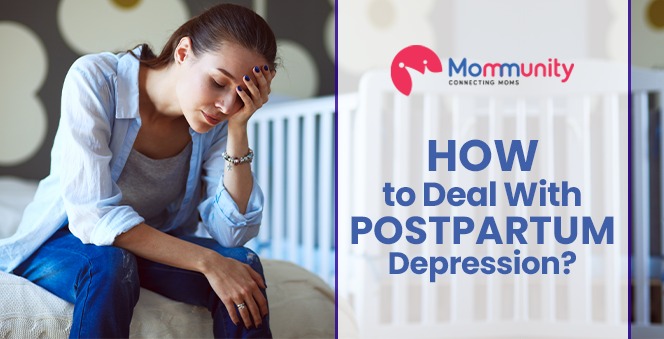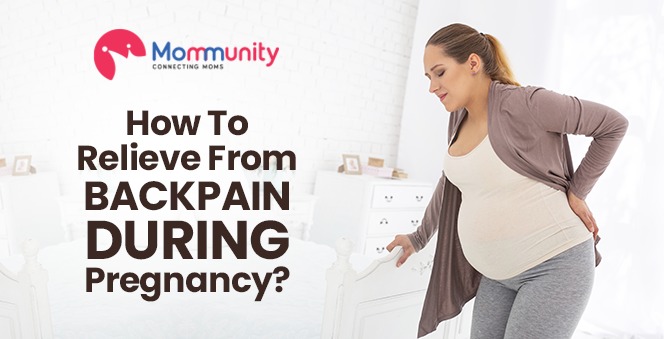Postpartum depression (PPD) is a mental health condition that has an impact on women after giving birth. For some women, it is normal to feel the “baby blues” for a few weeks post childbirth. Along with postpartum depression, comes the feelings of sadness, loneliness, worthlessness, restlessness, and anxiety which may last longer than a few weeks.
After delivering a baby, women might have mood swings. One minute they might feel happy, and the next minute, they may start crying. They may feel a little depressed, have a hard time concentrating, lose their appetite, or cannot sleep well, even when the baby is asleep. These symptoms usually begin about 3 to 4 days after delivery and may last several days.
SYMPTOMS OF POSTPARTUM DEPRESSION
- Feeling sad or down often.
- Frequent crying or tearfulness.
- Feeling restless, irritable, or anxious.
- Loss of interest or pleasure in life.
- Loss of appetite.
- Less motivation to do things and low energy.
- Having trouble falling asleep, or staying asleep, or sleeping more than usual.
- Feeling worthless, hopeless, or guilty.
- Unexplained weight loss or gain.
- Feeling like life isn’t worth living.
- Showing little interest in your baby.
- Not feeling attached to your baby.
Although a lot of women get depressed right after childbirth, some of them do not feel depressed until several weeks or months later. The depression occurring within 6 months of delivery could be postpartum depression. In odd cases, a woman may develop postpartum psychosis which is a very serious disease. It consists of all the symptoms of postpartum depression, as well as thoughts of hurting yourself or the baby.
WHAT CAUSES POSTPARTUM DEPRESSION?
The exact cause is unknown. However, the level of hormones fluctuates during pregnancy and right after childbirth. Those hormonal changes may produce chemical changes in the brain which plays a part in causing depression.
Postpartum depression is more likely to occur if you have suffered any of the following:
- Previous postpartum depression.
- Depression not related to pregnancy.
- Severe premenstrual syndrome (PMS).
- A tough or very stressful marriage or relationship.
- Only a few family members or friends are available to talk to.
- Stressful life events such as severe illness during pregnancy, premature birth, or a difficult delivery.
The most compelling way to diagnose and treat postpartum depression is by visiting your doctor. They can evaluate your symptoms and suggest the best treatment plan for you. Psychotherapy, antidepressants, or some combination of both, may be beneficial for you.
Also, there are few things you can do at home to help cope with everyday life like:
1. Exercise when you can- Exercising may have an antidepressant effect on women with PPD. Walking with a baby in a stroller might be an easy way to get in some steps and breathe fresh air and could also help ease depression.
2. Maintain a healthy diet- Healthy eating alone won’t cure PPD. Try planning ahead of time by preparing a weekly chart of meals on the weekend. Consider eating nutritious foods that help you feel better and give your body the required nutrients. Think about foods easy to grab on the go, such as chopped carrots and cubed cheese or apple slices and peanut butter, that are easy to grab on the go.
3. Create time for yourself- You may feel stuck with the breast-feeding. You might feel overwhelmed by work, household responsibilities, or your older children. Rather than dealing with these stresses alone, reach out for help. Let your partner or another trusted adult take the baby for some time. Meanwhile, you can schedule some dedicated “me time” at least once a week. Use this time to decompress even if it means going out of the house only between nursing sessions. Go on a walk, take a nap, go to a movie, or practice some yoga and meditation.
4. Make some time to rest- You’ve probably been told to “sleep when the baby sleeps.” This advice may get annoying after a while, but it’s rooted in science. Having inadequate sleep can also lead to depressive symptoms. In particular, this applies to women who sleep for less than four hours, between midnight and 6 a.m. or less than 60 minutes of napping throughout the day. Initially, your baby might not sleep through the night. Taking naps or going to bed early might actually be beneficial for you. Consider pumping a bottle beforehand, if you’re breastfeeding, so that your partner can take care of the baby and feed him overnight.
5. Focus on fish oils- Now is also a good time to increase your intake of omega-3 fatty acids, like DHA. Women having lower levels of DHA have a higher chance of experiencing postpartum depression. Seafood is a very good dietary source of DHA. And if you’re a vegetarian, you may consider flaxseed oil, which is another great source.
6. Examine your breast-feeding- Breast-feeding might actually reduce your risk of developing PPD. If you enjoy nursing, keep at it. That being said, in some cases women developed depression symptoms while breast-feeding. This condition is called Dysmorphic Milk Ejection Reflex or D-MER. With D-MER, you might experience sudden feelings of sadness, agitation, or anger which may last for several minutes after your milk lets down. So, the bottom line is, choose the feeding method that suits you.
7. Refrain from isolation- You might feel isolated at times but talking about your feelings with others can help change your mood. Speaking to experienced mothers regularly, who had previously experienced PPD, may reduce the level of depression in new mothers.
The power of social interaction is undeniable. Try talking to other people and experienced moms for support. Postpartum depression is just like any other depression. Support, counseling (talk therapy), and prescription medicines (antidepressants) are helpful. However, consult your doctor before getting any treatment. If you are breastfeeding, your doctor might tell you about the benefits and risks of taking an antidepressant. Though many antidepressant medicines are safe for breastfeeding infants, your doctor will guide you better on which medicine you should take while nursing your baby. Most importantly, don’t assume there’s nothing you can’t do if you are suffering from postpartum depression. Help is available, and you can definitely get better.




